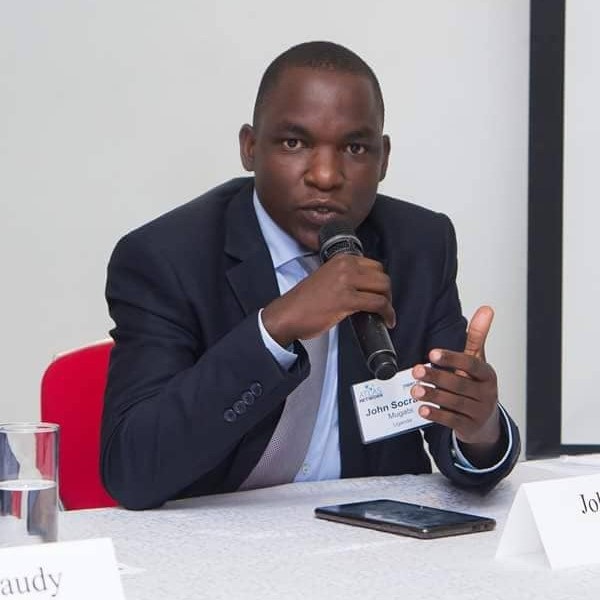
The South African government has signalled its intention to pursue a policy of expropriation without compensation, based in part on the narrative that the minority continues to control and own vast swathes of property to the exclusion of the black majority.
A similar phenomenon happened in Uganda in the 1960s and ‘70s. South Africa should learn from this experience and not abandon respect for property rights.
During the course of the nineteenth century, the British administration undertook a deliberate programme of bringing South Asians – mostly Indians – into Uganda.
This was to make of Indians “a buffer between Europeans and Africans in the middle rungs of commerce and administration”, according to Jan Jørgensen.
Over 30 000 Indian labourers were thus brought from British India to construct the Ugandan railway system.
By 1962, at Uganda’s independence from Great Britain, Indians controlled the greatest part of the Ugandan economy.
They owned far more property, like land and buildings, in all the towns of the country, than did indigenous black Ugandans.
This state of affairs led to a sense of animosity between the black majority and Afro-Asian minority, as the former felt that they were getting a raw deal in their own country.
This was partly because Indians were occupying many high ranking and top management positions throughout the economy as a result of their enterprising skills and their knack for engaging in international trade.
Black Ugandans also regarded high interest rates as unfair, whereas the Indians considered them business as usual.
The post-colonial administration was accused of persecuting Afro-Asians and this peaked in 1972 when the military President of Uganda, Idi Amin, declared an economic war, and announced that God had told him in a dream that Ugandans were being grossly exploited by Indians who were engaged in economic sabotage and corruption.
Amin announced that all foreigners, many of whom were nationals of Britain, had 90 days to leave Uganda, accusing them of “milking the cow without feeding it”.
Exaggerating the policies of “Africanisation” upheld by the previous government of Dr Apollo Milton Obote, Amin announced a review of the citizenship status awarded to Ugandan Indians.
His government would recognise all citizenship rights that had already been granted, but outstanding applications, numbering close to 12 000 at this time, would be cancelled.
In August 1972, when Amin ordered the expulsion of the Afro-Asian minority, there were close to 85 000 Indians in Uganda, and of these, around 23 000 people had had their applications for citizenship processed and accepted.
Upon expulsion, all their property devolved to a government body called the Departed Asians Property Custodian Board that then handled the distribution and transition of these properties into the hands of black Ugandans.
This property was effectively expropriated without compensation from their Indian owners on the back of a racialist narrative.
This decision led to a disastrous breakdown of the economy, plunging it into extreme inflation and the collapse of industries as a result of handing them to unskilled management that squandered them.
By the end of the regime, the Ugandan economy had the lowest growth rate anywhere in Africa, and it has never truly recovered from these vagaries.
Today, as a result, Uganda’s currency, the shilling, is the least valued in the East and Central Africa region, and the country has never had a favourable balance of payment.
Uganda continues to suffer from land conflicts that arose out of the expropriation, with later efforts to normalise the injustice being meted out on the people.
The compromise and distortion of the legal property tenure system was disastrous, with political instability being the order of the day as the aggrieved masses were polarised and fighting for factional interests.
Besides causing a humanitarian crisis, the expropriation of Indians’ property did not fundamentally better the status of black Ugandans.
It plunged the country into a crisis where basic household commodities like soap and sugar became products accessible only to the privileged elite.
Despite the imbalances and inequality that is often borne from historical events like colonialism, it is clear that expropriation without compensation or racialist governance should never be an option and should never be implemented, since those who suffer most in the end are those the policy was ostensibly designed to help.
After it happened in Uganda, we saw it again in Zimbabwe, and today we see it in Venezuela.
The poorest of the poor are always the ones forced into starvation and eventually exodus from the countries of their birth, when property rights are disrespected by their governments.
In the end, expropriation without compensation defeats its own ostensibly-noble intentions.
A better solution for South Africa’s problems is to acknowledge the imbalances of the past and address it through well-considered, compensation-based strategies that are transitional in nature – not permanent, like a constitutional amendment that will entrench expropriation without compensation – and not economically drastic.
Deprived groups should be assisted through the transfer of skills and technology, all based on the logic of sacrosanct property rights.
Mugabi John Socrates is a co-founder of Action for Liberty and Economic Development and a graduate of Kyambogo University, Uganda.




 Publications
Publications
 Partners
Partners








